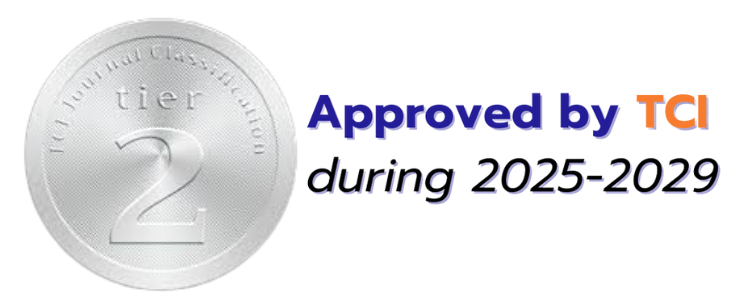The Development of Game-Based Learning Activities toward Learning Achievement in Occupation and Technology Subject, Learning Unit 4 Knowledgeable Agriculture of Matthayomsuksa 1 Students at Thamuang Rajbumrung School, Kanchanaburi Province
Keywords:
Game-Based Learning Activities, Game-Based LearningAbstract
This research aimed to 1) develop game-based learning activities in occupation and technology subject 2) compare the learning achievement of students studying by using game-based learning activities and normal learning and 3) study students’ s satisfaction with game-based learning activities toward learning achievement in occupation and technology subject, learning unit 4 knowledgeable agriculture of Matthayomsuksa 1 students at Thamuang Rajbumrung school. The sample group was obtained by selecting a purposive sample of 1) experimental group: Mathayomsuksa 1/3 students studying in occupation and technology subject, semester 2, academic year 2022, total 39 people and 2) control group: Mathayomsuksa 1/10 students studying in occupation and technology subject, semester 2, academic year 2022, total 39 people. The research instruments consisted of 1) learning achievement test and 2) satisfaction questionnaire. Statistics used in data analysis include mean, standard deviation, t-test statistics and content analysis techniques.The results of research were as follows: 1) learning activities are developed under “game-based learning activity plan” 2) learning achievement of students in the experimental group was higher than the control group with a statistical significance at .01 and 3) the students were satisfied with game-based learning activities at the highest level.
Downloads
References
Bureau of Academic affairs and Educational Standards. (2018). Basic Education Core Curriculum 2008 (Revised Edition 2017). https://academic.obec.go.th/web/home. [translated]
Jiraworaphong, P. (2023). Games Based Learning. https://antawe.wordpress.com/2013/12/30/game-baesd-learning/. [translated]
Jitchayawanich, K. (2019). Learning Management. Bangkok: Chulalongkorn University Press. [translated]
Khaemmanee, T. (2007). Teaching Science: Knowledge for Effective Management of the Learning Process (2nd printing). Bangkok: Chulalongkorn University Press. [translated]
Khaemmanee, T. (2019). Teaching Science: Knowledge for Effective Management of the Learning Process (23rd printing). Bangkok: Chulalongkorn University Press. [translated]
Kunpol, S. (2023). Game Based Learning to Development of Achievement in Mathematics Learning of Mathayomsuksa 1 Student. MBU Education Journal, 11(2), 247-259. [translated]
Lungka, P. (2021). Effects of Game-Based Learning on Learning Achievement of undergraduate students in Early Childhood Education Course. Journal of Educational Research, 16(1), 112-123. [translated]
Meejaitam, N. & U-nakarin, T. (2021). The Development of English Learning Achievement Using Gamification Technique for the Fifth Grade Students. Journal of Education Burapha University, 32(2), 76 – 90. [translated]
Poopadawat, S. (2010). Teaching principles for student development and assessment based on actual conditions. Bangkok: Duangkamon Publishing. [translated]
Preedilok, F. (2016). A Paradigm of Education for Sustainable Development. Bangkok: Chulalongkorn University Press. [translated]
Saleewong, D., Imsiri, P. & Thongtawee, K. (2018). The Development of Instruction Media on Media Literacy for Undergraduate Students, Valaya Alongkorn Rajabhat University under the Royal Patronage. Journal of Educational Measurement, 35(98), 134 – 149. [translated]
Saiboonsri, U., Kesonsuwan, C., Nantasanee, S. & Deeprasert, A. (2023). The Effectiveness of Game-Based Learning for Enhancing Academic Achievement in Mental Health Promotion and Psychiatric Nursing Studies among the Third-Year Nursing Students at the Faculty of Nursing, Suan Dusit University. Suan Dusit Graduate School Academic Journal, 19(1), 129 – 145. [translated]
Srinathiyawasin, T. (2021). Teaching and Learning Methods through Game-Based Activity towards the Achievement of Student. Journal of Palisueksabuddhaghosa Review, 7(3), 40 – 55. [translated]
Srisa-at, B. (2017). Basic Research. Bangkok: Suwiriyasan. [translated]
Thepphuthorn, T., Pattanasith, S. & Srifa, P. (2022). The Development of Augmented Reality Technology Educational Boardgame for Game Base Learning to Promote Learning Achievement of Prathomsuksa 3 Student. Journal of Educational Measurement, 39(105), 64 – 75. [translated]
Downloads
Published
Issue
Section
License
Copyright (c) 2024 วารสารศาสตร์การศึกษาและการพัฒนามนุษย์

This work is licensed under a Creative Commons Attribution-NonCommercial-NoDerivatives 4.0 International License.







